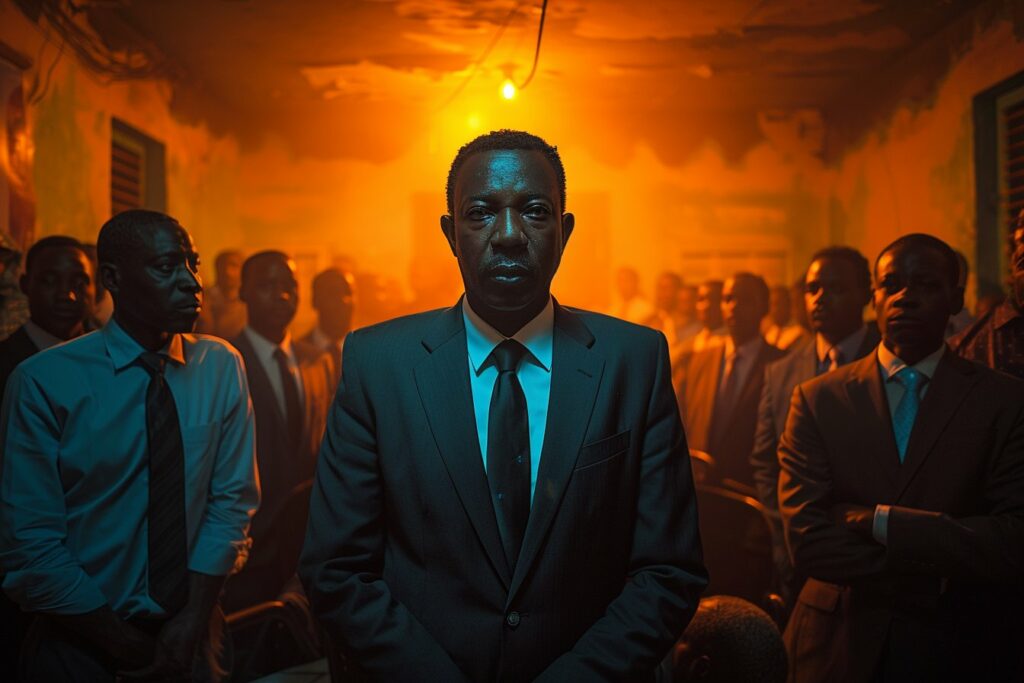In an exclusive conversation with CNN, the office of Haiti’s embattled Prime Minister Ariel Henry has clarified that any transitional council established to oversee the country’s governmental transition can only be appointed by his cabinet. This follows regional Caribbean leaders’ meeting earlier this week where Henry agreed to resign from power once a provisional council is set up in order to pave the way for future elections.
Constitutional Provisions and Haiti’s Political Future
The undercurrents of political instability in Haiti have emerged as a larger concern, given the recent weeks marred by violence and near-collapse of social order in the nation. Amidst all this tumult, Henry’s office emphasizes the importance of sticking to constitutional procedures, even as they express their willingness to step down from power.
According to Jean Junior Joseph, special adviser to Prime Minister Ariel Henry, although the prime minister does have patriotic intentions to resign along with his cabinet, “we have to do this in order.” Citing Article 149 of Haiti’s constitution, which grants powers to the ministerial cabinet to make decisions in the absence of the president, Henry’s office asserts that only his cabinet can appoint a transitional council.
Impact on Haiti’s Political Transition Towards Elections
When questioned about how this declaration might affect Haiti’s political stability and progress towards holding elections, UN spokesperson Stéphane Dujarric said that it was not up to the United Nations or Secretary-General to impose solutions on Haiti’s people. What remains crucial at this point is ensuring a smooth democratic process through adherence to necessary constitutional provisions.
Following Monday’s Caribbean Community and Common Market meeting, Henry agreed that a transitional council would be established and granted some presidential powers, including the authority to name a new interim prime minister. However, during Henry’s absence from the country, gangs besieged Haiti’s primary airport, preventing his safe return.
Dominican Republic Continues Deportations Amidst Chaos in Haiti
In the midst of the current disorder in Haiti, the Dominican Republic stands as the only nation still deporting people back into the troubled state. The International Organization for Migration, which monitors migration patterns globally, has released new data revealing this ongoing phenomenon.
UN spokesperson Dujarric, when asked about the Dominican Republic’s recent deportations, said that the UN was against forced mass displacement of people back into a country that is clearly not safe.
The United Nations office in Haiti plans to establish an air bridge between Haiti and the Dominican Republic to facilitate the movement of UN personnel and the provision of humanitarian aid.
Key Takeaways
- Haiti’s Prime Minister Ariel Henry emphasizes adherence to constitutional procedures while expressing willingness to step down from power.
- Article 149 of Haiti’s constitution grants decision-making power to the ministerial cabinet in the president’s absence, which includes forming a transitional council.
- The Dominican Republic remains the only country continuing deportations to an unstable Haiti, drawing concern from the United Nations.
As Haiti struggles with political unrest and internal turmoil, it becomes increasingly important to ensure that any transition of power occurs through constitutionally prescribed processes. While regional leaders grapple with the situation, efforts by the international community to provide humanitarian support for the beleaguered nation and promote democratic principles can help steer the country towards stability and progress.

